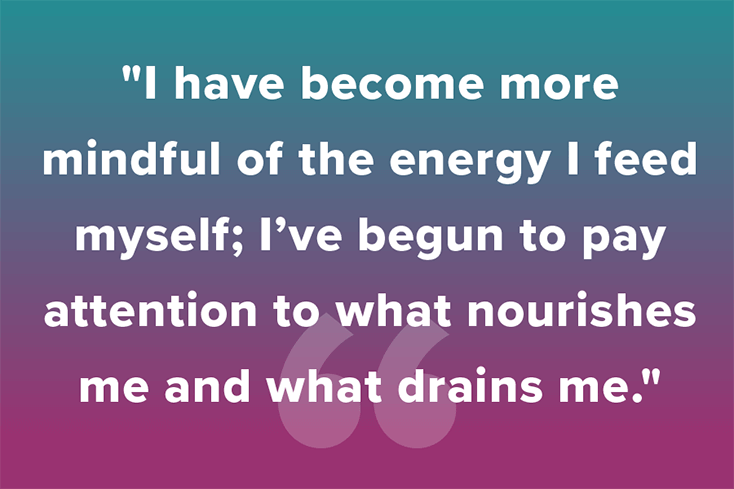July 27, 2023
By Millicent Franco

Mental health struggles have been a consistent presence in my life from the day I was born. My lived experience has pushed me to explore the connection between identity, inherited trauma and mental health.
I grew up in a Hispanic household, where we never discussed mental health — although we all struggled with trauma and emotional distress. I was raised by my mother, who was a victim of sexual abuse as a child, and never received treatment for her wounds. Her trauma manifested as resentment toward (and fear of) men.
In many ways, I inherited her pain; she instilled in me from a young age the notion that most men — if not all — were out to hurt me. If ever showed affection to a man, my mother accused me of “inviting” him to abuse me. We never had broader discussions about our emotional well-being; if anyone felt depressed or couldn’t get out of bed, we attributed this to “just being lazy.” So I struggled in silence with my depression.
In secret, I contemplated suicide more times than I can count. When I took a chance and confided in my family, they told me that I needed to “suck it up” because I was choosing to feel this way — choosing to be weak. I always thought to myself, "Why would I choose to feel this way?"
I carried these lessons from my childhood well into my adulthood. I internalized my mother’s trauma, which manifested in my other relationships; I measured my self-worth by how much I interested men. With this inherited trauma comes more depression, inevitably remembering my family’s words, I "sucked it up" and stuffed down my pain, feeling like I had no other option.
Despite my attempts to “be strong,” my mental health continued to deteriorate. My mother passed away shortly after I gave birth to my oldest son and, by this time, had perfected looking like I was ok on the outside. After her passing, I turned cold and felt like a zombie. I fully neglected my own needs and concentrated on work and raising my son.
On the outside, it looked like I had it all together. But on the inside, I was falling apart. Six years later, I had another child and my mental health declined even further. My feelings of worthlessness tripled, and there were nights where I would lay in bed and convince myself that my sons would be better off without me. Eventually, I took another chance and confided in a friend. In response, she gave me reasons why my sons needed me in their lives.
This was the push I needed to seek treatment; I was diagnosed with postpartum depression, began counseling and started seeing a psychiatrist who prescribed the appropriate medication. I allowed myself to be vulnerable with my therapist and told her about the trauma I had stuffed down. I wrote (and then burned) letters to the people who had hurt me as an exercise to let out the feelings I had been holding inside. I started journaling to give myself an outlet for all the emotions I had been suppressing. Seven months later, with coping mechanisms and support in place, I felt strong enough to stop taking medication and continue with therapy weekly.
More recently, I've taken to meditating twice a day, in an effort to reflect on and process my emotions. I have become more mindful of the energy I feed myself; I’ve begun to pay attention to what nourishes me and what drains me. I have decided to stop drinking; alcohol has always been an outlet I used to numb myself, but it turned me into a person I didn't like. I have also changed the music I listen to and the ways I refer to myself. Rather than calling myself “a mess,” I say that I'm “a work in progress.”
I can honestly say that seeking treatment saved my life — and I am the healthiest I have ever been, mentally and emotionally. In all of this, I've learned that the trauma I carried inside doesn't define me. I am learning who I am and who I want to be. I have had the realization that I get to choose who I want to be. I share this with hope that it will encourage someone else to seek treatment and possibly save their life.
We’re always accepting submissions to the NAMI Blog! We feature the latest research, stories of recovery, ways to end stigma and strategies for living well with mental illness. Most importantly: We feature your voices.
LEARN MORENAMI HelpLine is available M-F, 10 a.m. – 10 p.m. ET. Call 800-950-6264,
text “NAMI” to 62640, or chat online. In a crisis, call or text 988 (24/7).